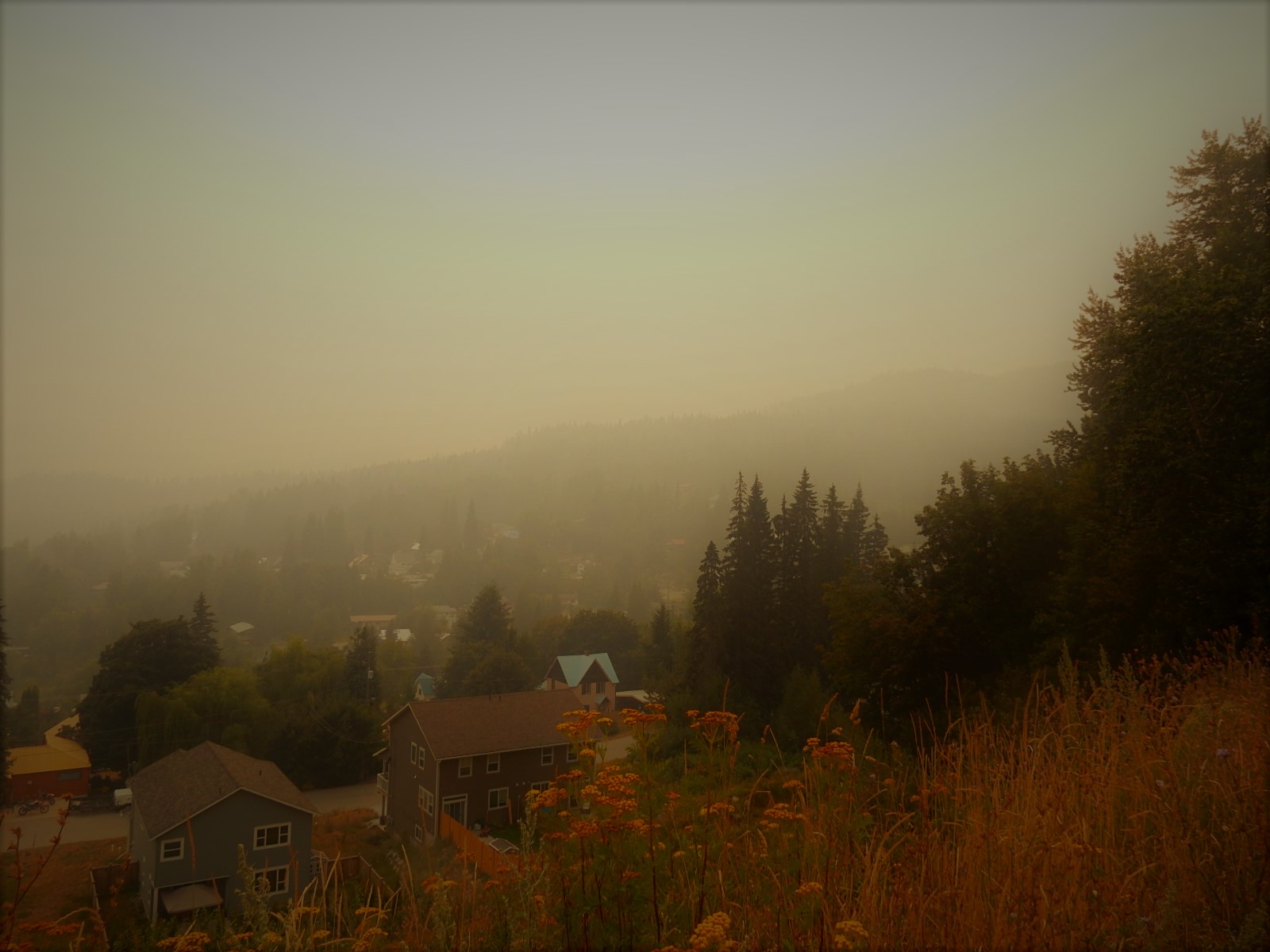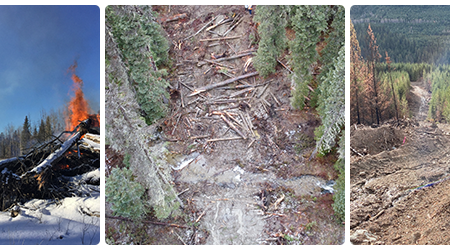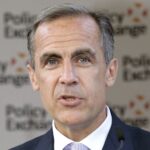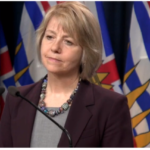Op/Ed: Climate 'State of Play' update
From ECOJUSTICE; by Charles Hatt and Alan Andrews
As heatwaves and forest fires broke out across Canada last summer, Ecojustice analyzed the “climate state of play.” Now, we’re back with an update.
In the months since Ecojustice’s last analysis of the ‘climate state of play’ in Canada, the striking science on climate change has often felt unavoidable and — to all but a few — undeniable.
Reports from the UN’s Intergovernmental Panel on Climate Change (IPCC) and, more recently, a Canadian review of data from The Lancet, underline the climate crisis in bold, urgent strokes:
Climate change is the biggest global health threat of the 21st century, and tackling it could be our greatest health opportunity, The Lancet report said.
And, from the IPCC: The next 12 years are critical if we want to keep warming to 1.5 degrees Celsius and avoid climate disaster.
The last few months have also seen a flurry of political maneuvering from both the provinces and the federal government. The Trudeau government formalized its carbon pricing plan in October while several provinces, led by Saskatchewan and Ontario, lined up their constitutional lawsuits against that plan. Then Ontario and British Columbia released their own climate strategies in November and December, respectively. Finally, Canada recently indicated it will target greater GHG reductions before 2030, though no details have been provided.
As we process these developments and continue to reflect on the physical symptoms of climate change we saw across the country this past summer, we felt it was time to step back once again and analyze the climate state of play in Canada and around the world.
Here’s what we’re paying attention to:
The cost of climate inaction
The IPCC’s special report on the impacts of global warming above 1.5 degrees and The Lancet Countdown on health and climate change make it clear the cost of inadequate action on climate change will be human lives.
According to The Lancet report, “Trends in climate change impacts, exposures, and vulnerabilities show an unacceptably high level of risk for the current and future health of populations across the world.”
Officials in Quebec have linked more than 90 deaths to a heat wave in the province this past summer. At one point the smoke from B.C. forest fires was so bad that air quality in Edmonton was among the worst in the world and Metro Vancouver saw a spike in doctors’ visits and prescriptions for asthma medications.
As The Canadian Press wrote, “Canada’s failure to cut greenhouse gas emissions isn’t just killing the planet; it’s killing Canadians.”
And the impacts on human health, security and wellbeing will get worse.
The IPCC warns that past the threshold of 1.5 degrees of global warming, the world will see notably more extreme temperatures, melting sea ice and rising sea levels, and increasing threats to food security, water supplies and safety — especially for vulnerable populations.
Blowing past 1.5 degrees also risks triggering natural feedback loops that could lead to runaway global warming that no human technology could stop.
The good news is that we still have a chance to keep warming to 1.5 degrees. But there is no time to waste.
According to the science, the world will have to cut its annual carbon pollution in half by 2030 and get to net-zero emissions by 2050 to keep warming down. Achieving this will require governments to take bold legislative action that sets the stage for dramatic emissions reductions.
A failure of ambition
As a wealthy, technologically advanced country with a history of high emissions, Canada has every reason to lead in getting emissions down to zero. The global targets above should be considered the minimum standard for current and future Canadian governments.
Unfortunately, even in the face of the IPCC and The Lancet findings, Canadian governments at various levels are failing to step up their efforts to combat climate change.
In Ontario, Canada’s most populous province, the Ford government has gutted the existing cap and trade program, axed the independent office of the Environmental Commission of Ontario, and introduced a climate plan that dramatically weakens the province’s pollution targets.
“We shouldn’t have any illusion that this is anything but a weakening of where we need to go to address emissions,” Ecojustice told VICE News after Ontario released its plan. “We’re really going backwards.”
B.C. introduced a climate strategy of its own on Dec. 5.
Compared to the backwards slides we’ve seen from other jurisdictions, including Ontario, B.C.’s plan is remarkably progressive. It is an impressive strategy that contains crucial detail on what, when and, crucially, by how much BC is going to reduce pollution. Most importantly, the strategy comes with a commitment to update B.C.’s climate laws so that they ensure the government is accountable for meeting its climate targets.
However, even if fully implemented, B.C’s strategy would leave the province shy of its legislated 2030 target — and significantly short of the reductions the province would need to make to help achieve the 50 per cent drop in global emissions the IPCC says is necessary by that time to prevent climate disaster.
Canada’s current national target for reducing carbon pollution is also well short of what the science says is needed to keep warming below 1.5 degrees and protect human health, security and wellbeing from the growing impacts of climate change.
According to the UN Environment Programme’s 2018 Emissions Gap Report, if Canada and the other nations under the Paris Accord stick to their current targets, we’ll be on track to more than 3 degrees warming by 2100, and continued warming thereafter. Making matters worse, Canada isn’t even on-track to meet its existing, inadequate goals.
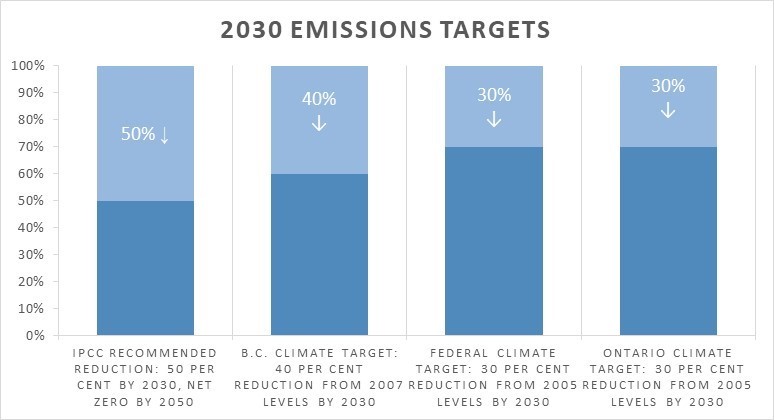
What this all amounts to is a failure of ambition and moral leadership, across the country and at multiple levels of government.
Canadian law and policy makers aren’t setting strong enough targets for reducing carbon pollution and are failing to put in place the laws and policies that would ensure the targets that we do have are met. As a result, we are not on track to do our part to keep global warming below 1.5 degrees Celsius — a failure that will have serious consequences for today’s youth.
Nine million youth
For months now, Greta Thunberg, a student from Sweden, has waged a school strike every Friday in protest of leaders’ inaction on climate change.
The fifteen-year-old’s determination and honest-to-the-point-of-bluntness statements have resonated with international media and other youth around the world, and attendees at COP24, the UN climate change summit currently being hosted in Poland.
“Some people say that we should be in school instead, but why should we be studying for a future that soon will be no more?” Thunberg says in a video posted on her Twitter account. “And what is the point of learning facts within the school system, when the most important facts, given by the finest science of that school system, clearly means nothing to our politicians and our society?”
To date, more than 20,000 students have joined Thunberg in coordinated school strikes, including peers in Australia, Japan, and here in Canada.
In Canada youth are our majority demographic, with over 20 million residents aged 0-35 years, just under 60 per cent of the total population.
These are the Canadians who will pay the heaviest price to date for today’s climate inaction. And they are tired of waiting for older generations to heed the science and do the right thing.
Environnement Jeunesse, Quebec-based environmental group, recently announced a lawsuit against the federal government on behalf of Quebec residents aged 35 and under. The application for a class action suit claims the government’s failure to combat climate change threatens their futures.
The suit follows a global trend that has also seen young people in the United States, Portugal, the Netherlands and elsewhere move to take legal action against governments for failing to mitigate the impacts of climate change.
This rising tide of litigation serves as inspiration for Ecojustice’s own case development. Right now, Ecojustice lawyers are working to build a flagship climate case, rooted in science and led by our commitment to combatting climate change.
Today’s climate state of play is rapidly evolving. In this context, it can be difficult to feel hopeful. In fact, The Lancet report found that, in addition to posing a threat to physical health, climate change is taking a toll on some peoples’ mental wellbeing.
We can’t blame anybody for feeling overwhelmed by the magnitude of the challenge. But we do believe that there is reason for hope and that, together, we can rise to the occasion.
Looking ahead, we pledge to continue to monitor developments, to keep you updated and offer opportunities to take action, and to do what Ecojustice does best: Go to court and use the power of the law to protect human health, security, and wellbeing from the impacts of climate change.
If you’re looking for ways to take action in your own life, we recommend checking out these tips from Grace Nosek, a founding member of the UBC Climate Hub. And thank you for the support you’ve given to Ecojustice in its fight so far and for continuing to back us as we work to develop groundbreaking litigation to combat climate change.


